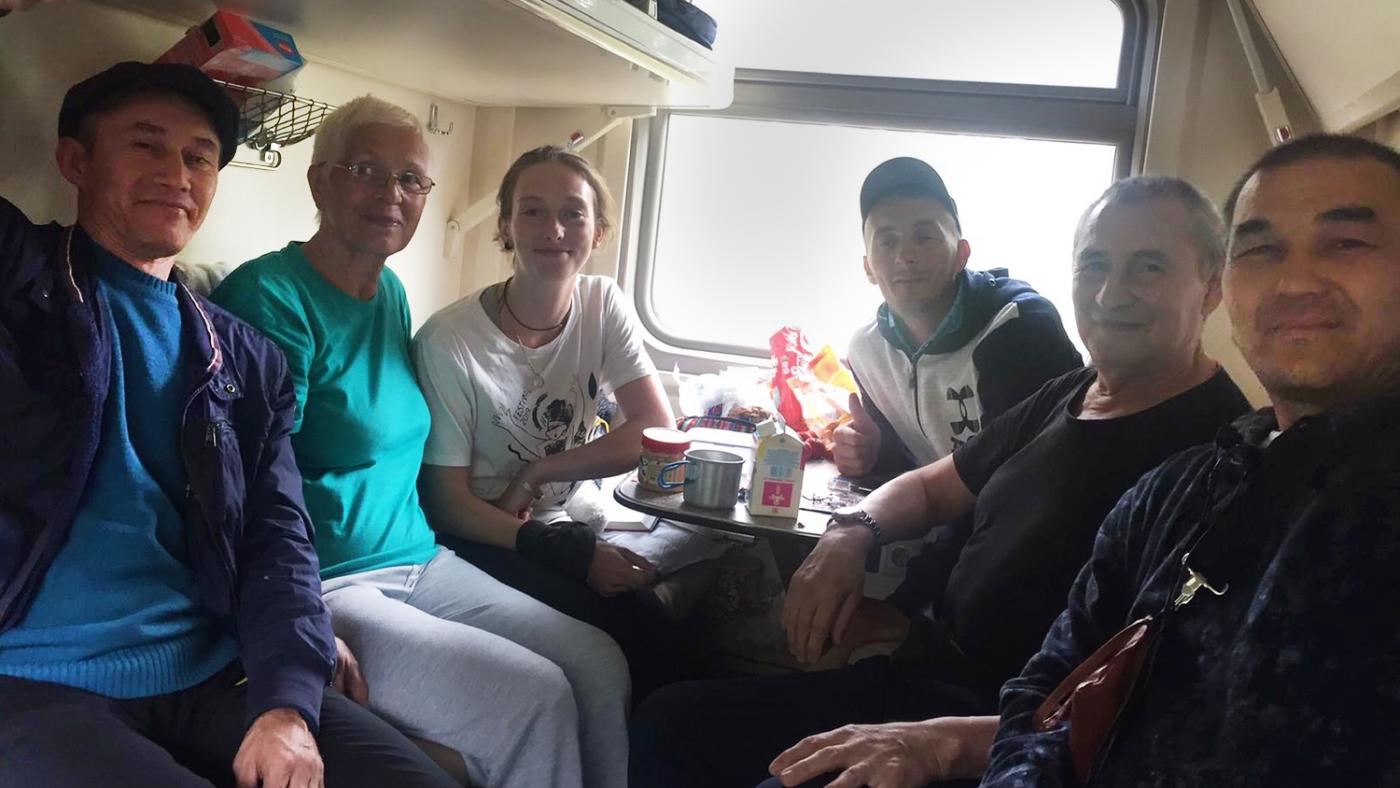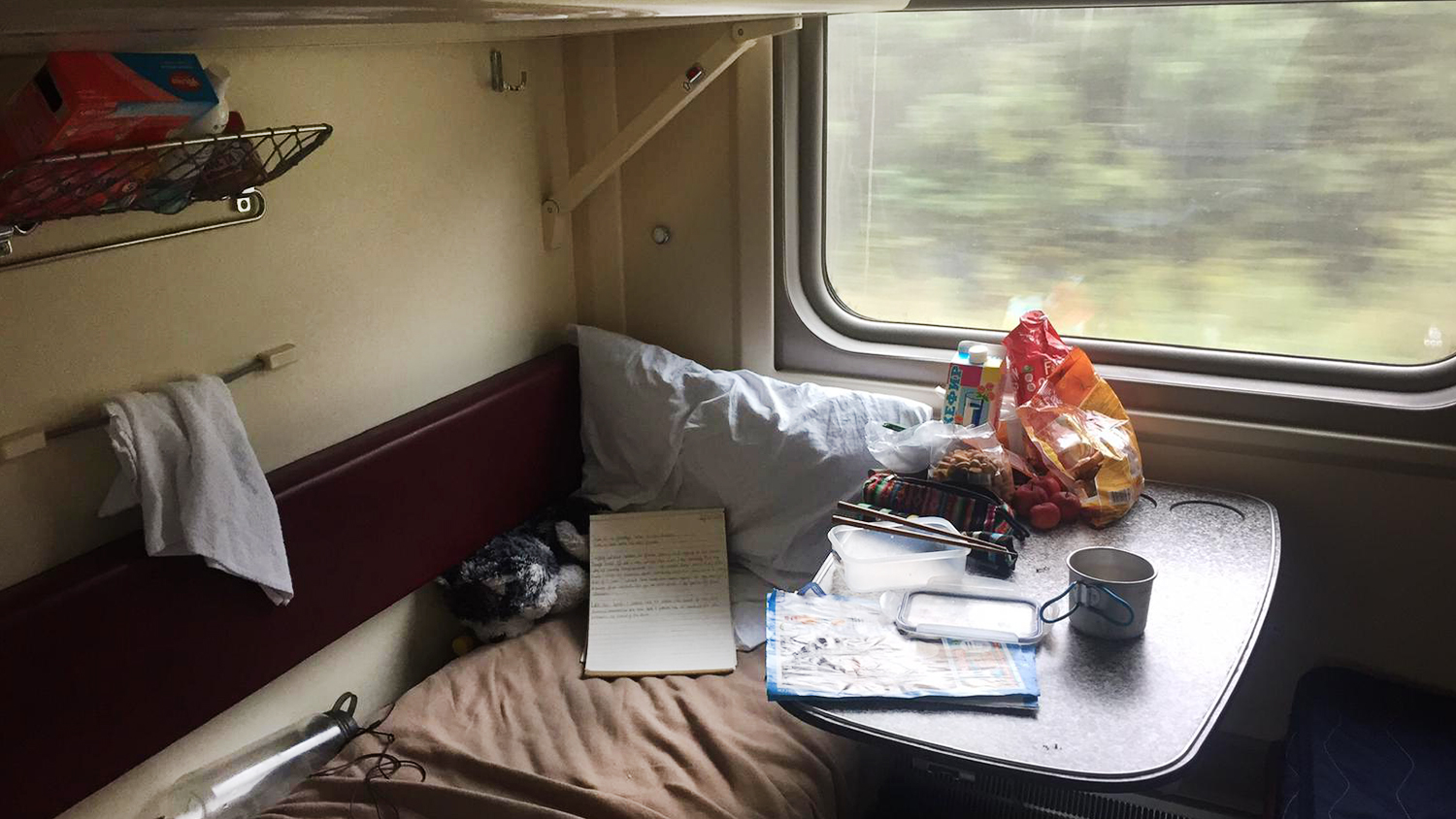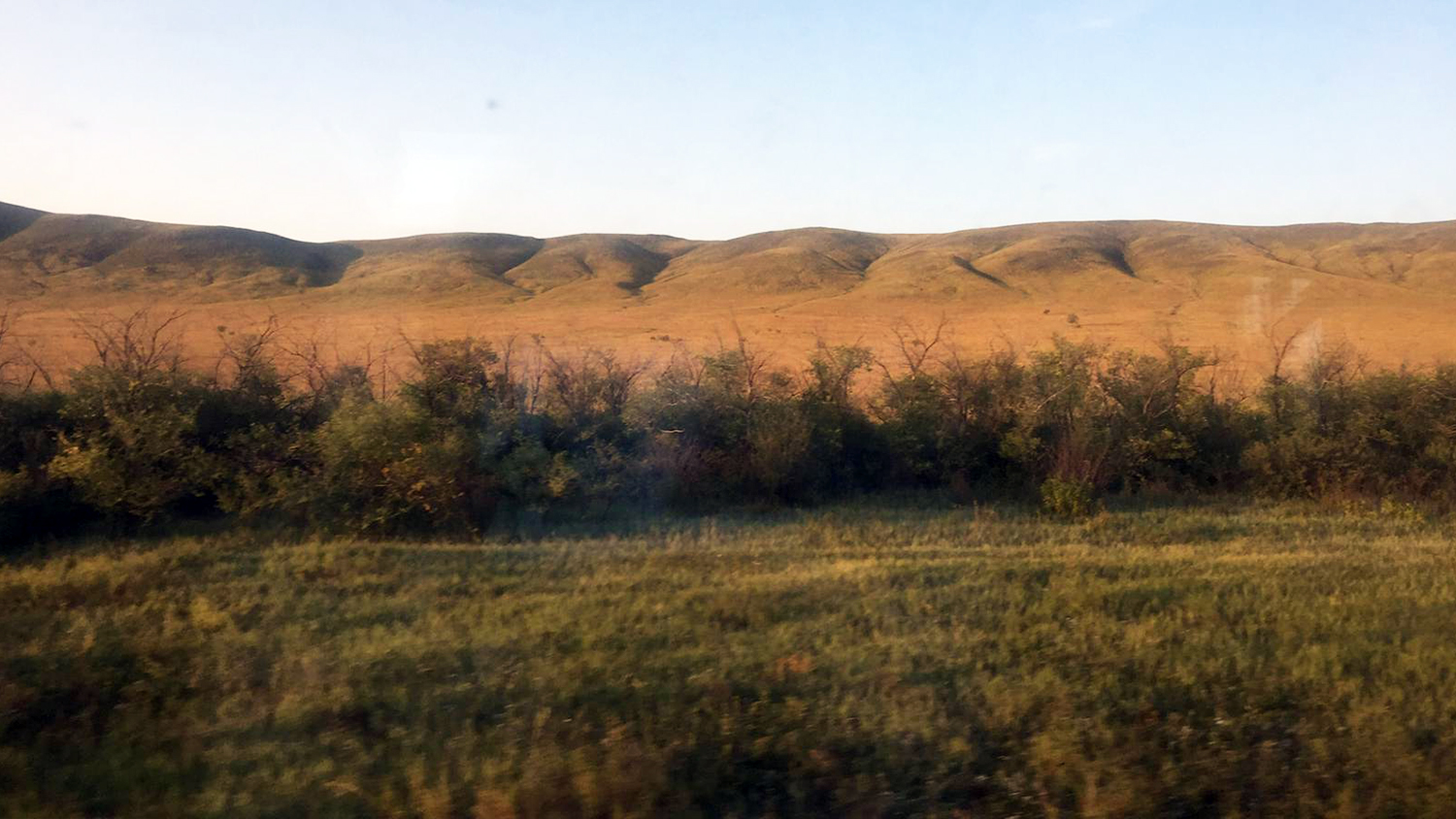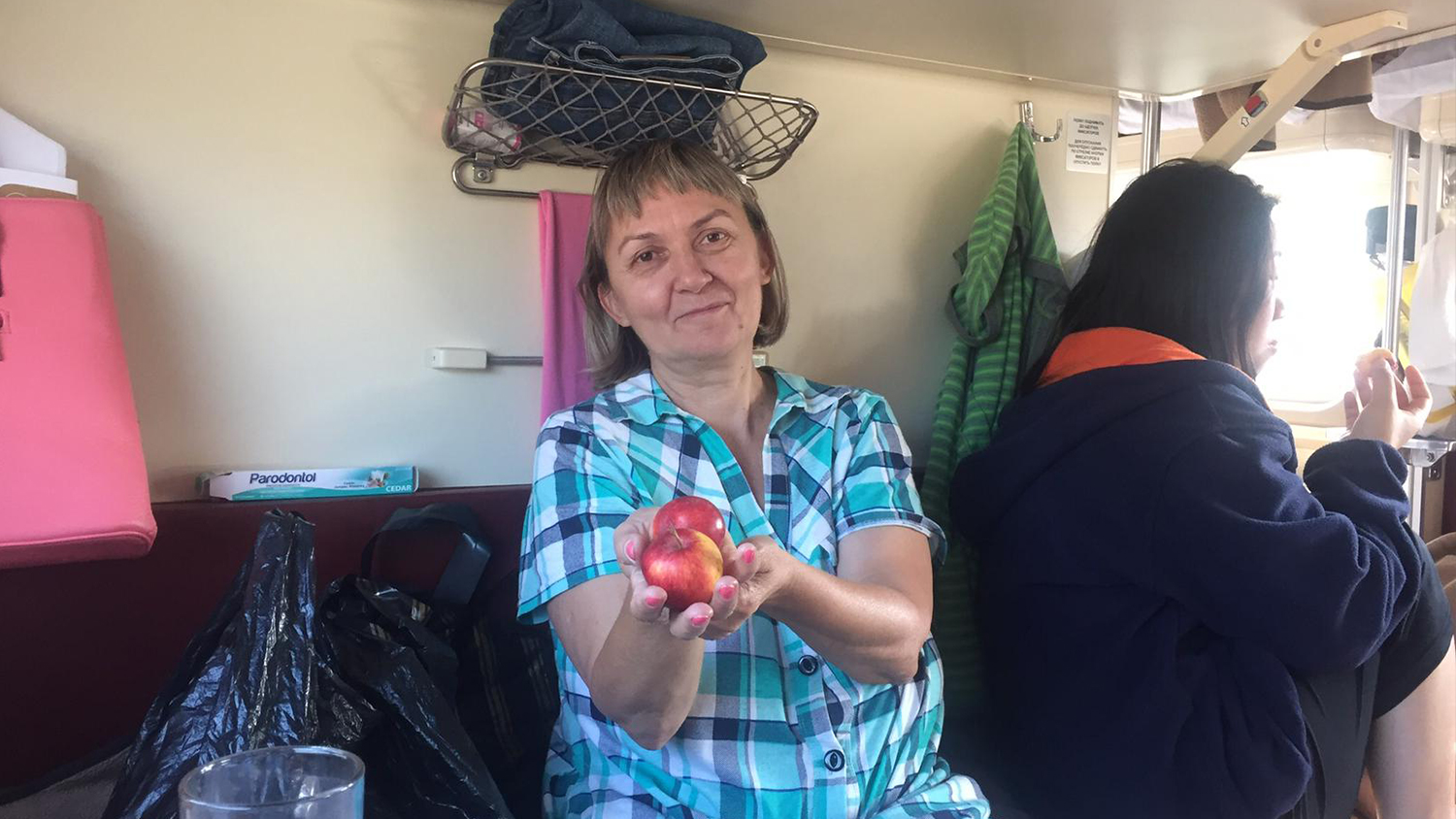Exchange student prefers return trip by boat and train from Tokyo to Utrecht

Marenthe Middelhoff, a bachelor student in Liberal Arts and Sciences, went to Tokyo for her UU exchange and studied environmental business for five months. When she finished her courses, she travelled through Japan for a month. After that, she decided not to take the plane back but to travel back to Utrecht by train and boat. From Japan, she took a boat to South Korea and from South Korea to Vladivostok. Then she travelled home through Russia with the Trans-Siberia Express. This trip took a total of ten days, while she could have been home in twenty hours.
You could also have chosen, for example, to travel a little longer within Japan, instead of making this return trip. Why did you make this choice?
“If I had boarded a plane, I would be back in my old world in one fell swoop. Now, I came home really calmly. I had no jet lag and during the trip I suddenly had time to process the impressions I had gained during my exchange. It does not feel right to me to fly to the other side of the world in one day. I definitely prefer this way of travelling. It really gives a powerful feeling to stand on the deck of such a ship. Moreover, I had many nice, unexpected conversations with people. This really was an adventure and very different from a flight where you put your earplugs in and sleep mask on and want everything to pass as quickly as possible."

To what extent did the discussion about flying and sustainability play a role in your consideration? Did you suffer from flying shame?
“I have flown quite a lot myself and I will probably take the plane in the future, but this time I thought: I will see if it can be done differently. When I wanted to book a plane ticket back, it actually bothered me. I just didn't like the idea of all those emissions. Whether flying shame plays a role in this? I never thought about flying shame while making that decision, I'm not easily ashamed anyway, haha. At the same time, I cannot deny that I am in a social environment where sustainability is considered important. If I would tell those friends that I had flown, I would probably hear some judgement. However, I also see that there are enough people around me who think sustainability is important and still fly a lot. Unconsciously, I am somewhat influenced by the discussion about flying shame. But the moment I decided not to fly, it was mainly because I am very aware of the adverse effects of flying on the environment, and not because I was afraid of the judgement of other people."

You said that through this journey you were able to process the impressions that you had gained during your exchange a bit. Do you not get many new impressions during such a journey?
“Yes, that's right, but at the same time you can stare into space for hours on the train and you have plenty of time to get a little bored and think. The landscapes are also very beautiful, especially in the beginning of the Trans-Siberia Express. I always thought that Siberia is a place where it’s always cold and wet, but it was actually very green and sunny in the summer. It all looked beautiful and unspoiled. Cities there are somewhat less beautiful, though. Anyway, I have indeed gained a lot of new impressions during my journey, but because of this slow way of travelling the world felt smaller and more understandable. They sometimes say that the world is getting smaller because you can travel to the other side of the world in one day. For me, the long journey felt like a "global village". I talked to many people because of it, and in particular on the train there was a sense of solidarity. For example, people always shared their food with me, and when a new person entered the compartment, I was introduced to the people in my compartment in Russian. "
Have certain people made a lasting impression on you?
“I have met many people from different countries and layers of the population. For example, I spent three days on the train with a seventeen-year-old girl travelling from Vladivostok to Lake Bagel, a lake in central Russia. She had visited her father and now went back to Lake Bagel where she is studying to become a teacher. I thought it was quite special that she made such a long journey on her own. Apparently, however, she had been travelling back and forth on her own for three days from Lake Bagel to Vladivostok for years because her parents are divorced. For me, this shows how safe such a train journey actually is.
“For a while, I was also on the train with a man from Tajikistan and a man from Kazakhstan who went to work in construction in Russia, never thought I would ever meet people from those countries. I also remember a woman of about eighty-five years old who had the highest bed, but absolutely did not want to swap with me. People often think that on the Trans-Siberia Express you only see people who eat sausage and drink vodka, I think I saw that once. I especially met many lovely people, apart from the grumpy conductor perhaps."
Was there a difference between the encounters in Japan and the people you met on the way home?
“Of course it is a generalisation, but the people I met in Japan were generally richer and came from urban areas, while the people I met on the train had significantly less money and lived outdoors more. This influenced how people thought about things like the climate, for example. I talked to many people about sustainability on the train. It struck me that those people thought a lot more about the climate than I initially expected. For example, they talked about how the snow in the places where they come from was diminishing every year and really related it to climate change as a wider phenomenon. These people are more exposed to changes in the landscape, making them more vulnerable to the effects of climate change. Although Japan is such a rich country, I noticed very little awareness of climate change there and the concept of sustainability is not really well-known there, although there are, of course, many factors that play a role in this.”
What memories remain when you look back to the journey by land?
“I have learned during my trip that everything actually happens naturally, and that you get used to everything rather quickly. For example, it may seem like a long time in advance to be on the train for six days or nerve-racking to catch the boat to South Korea. Ultimately, everything felt very normal and it was over before I knew it. It all went very smoothly. "
Many UU students go on an exchange. Would you also recommend other students to travel this way?
“I would recommend such a slow way of travelling to everyone. It is a nice way to process the impressions of the exchange. Furthermore, it is nice that during such a trip you get to know people that you would not normally come across. That is already true if you stay closer at home, for example if you travel to Hungary. Moreover, travelling by train can ultimately turn out to be cheaper than flying. For example, you can be in the centre of a city faster. However, my journey by train was more expensive than a plane ticket. It could have been cheaper if I had prepared it a little better. The train journey itself cost 340 euros, but I did not buy my visa for Belarus in Japan but in Russia, for example, which was twice as expensive. I didn't mind it myself. I received a lot in return. For example, I had an entire day in Minsk and Vladivostok. Furthermore, everyone could certainly do it, as I said, I have seen people of about eighty who make such a trip. Those were of course elderly people who were travelling in their own country and spoke the language, but nowadays apps like Google Translate make it very easy to communicate. Earlier I said that it felt like an adventure to me, but at the same time, not much can go wrong in the end."
This article was created in collaboration with Green Office University Utrecht.